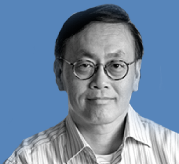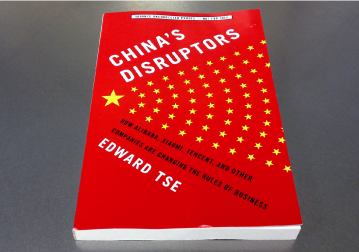
Trump policy on China: Playing hardball
By Edward Tse, Gao Feng Advisory
Donald Trump’s recent appointment of Peter Navarro to head his newly formed White House National Trade Council has sparked controversy.
Navarro is known for his hawkish views on China and many believe that, by appointing him, the US president-elect is signalling that he will play hardball with China on trade when he takes office.
Navarro has written a number of books and filmed a documentary in which he criticised China for unfair trade practices, especially with the US. He has called China “a cheat”, “brutal” and “amoral”.
Instead of launching a trade war, collaboration is the way to go.

Fuyao Glass, a privately owned Chinese automotive glass company, recently announced it would invest $1 billion in its US operations to open manufacturing plants in both Ohio and Michigan. These plants would create over 3,000 jobs for American workers.
Fuyao chairman Cao Dewang said the economics of manufacturing in the US is now competitive relative to that in China, at least for his company.
The US auto market is significant and having an established presence next to its customers is crucial for Fuyao.
A report by US research company Rhodium Group, published in December and titled Chinese Investment in the United States, said Americans employed by Chinese firms have grown from less than 10,000 in 2009 to more than 100,000 today.
Rhodium also found that the majority of American firms acquired by Chinese companies have undergone expansion after the initial acquisition, and that Chinese companies’ investments are becoming capital-intensive production and research and development operations, that will bring in more jobs for American workers.
Earlier, Rhodium forecast that Chinese companies would invest between $100 billion and $200 billion, and create 200,000 to 400,000 jobs in the US by 2020.
Perhaps Trump will be concerned about investments by China (or other foreign countries) in sectors that the US government feels would endanger its national security interests.
However, there is still lots of room for investments outside this area. The Fuyao investment is one such case. Manufacturing of other types of auto parts or supplies, construction machinery, building materials, consumer products and retail come to mind, too.
Attracting Chinese companies to invest in the US and build plants, especially in the Rust Belt, is probably the fastest way to create jobs where the US most urgently needs them.
Many of the Chinese companies with such plans or interests are not “leaving China”.
Take Fuyao: China remains and will be its largest market, but investing overseas also makes sense, given the emerging international opportunities.
In addition to hard-core manufacturing, Chinese investors are also interested in the services, media and entertainment sectors , as well as internet-centric technology. Such investments would also create a substantial number of local jobs.
The competitiveness of a country is based on its relative, sustainable competitive advantages. And they are driven by innovation, openness and collaborative leverages.
Given Trump’s stated desire to “make America great again”, he must focus on how to increase the competitive advantages of the US, and that will not come from isolationism and launching trade wars.

Edward Tse is founder and CEO, Gao Feng Advisory Company, a global strategy and management consulting firm with roots in China. A pioneer in China’s management consulting profession, he led the Greater China operations for two major international management consulting firms for 20 years and is widely known as China’s leading global business strategist. He is author of The China Strategy (2010) and China’s Disruptors (2015).


